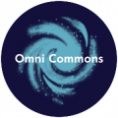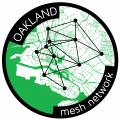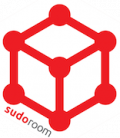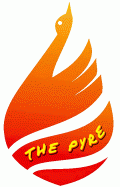salvation from this salvaged self-
i did alright, you did enough,
disembodied gestures yet garner pulchritude.
tis i who refuse the sooth
-sayer, i flay her!
dice her finely and saute her.
oh, so it goes,
add in a handful of toes.
|
|||
|
I am constantly reworking the whole. Truth be told, things have never been so gooey. I recommend clicking. The past six weeks have been spent throwing myself into the writing of my thesis. Currently, I have 53 pages of solid writing, and in the process have discovered an emergent structure that belies that which I’d previously been naively imposing on myself. It has become clear to me that I am able to provide a kind of phenomenological perspective that is notably absent from much of the preexisting literature on computer-mediated communication, generally, and online social networks, particularly. I have found a lot of journalism, a lot of psychology, a lot of sociology, and various intersections of the three. Don’t get me wrong, there is some great research out there, but the vast majority is either biased to some degree (not that there is such a thing as being unbiased, but that’s a whole other post) or somewhat dehumanizing, Anthropology, in contrast, is the analysis of individual voices and perspectives that make up webs of meaning and power. Humanism and science spring forth and coalesce! But I digress: in tandem with the written thesis, I am also creating a website. A website that is both a blog (this blog) as well as a wiki, so as to better articulate a) my personal ethnographic and research process, and b) the various media sources involved in the construction of my knowledge (images, blogs, videos, online articles, public forums, the sites themselves, etc;). By the way, if anyone reading this has any career advice, throw me a bone! sing: i will swallow your sadness and eat your cold clay buoyant abeyance of disbelief, oh, call it off! For those of you who think “Facebook Activism” is only good for whining about the company’s latest invasions of your privacy, or expressing support for Stephen Colbert’s “presidential race,” check it: Over 270,000 Facebook members, mostly Central American youths, have joined a group called “One Million Voices Against FARC,” which was established one month ago. The group leaders organized a rally, using Facebook as a means to gather support both within Columbia as well as globally. This past Monday, between 500,000 and 2 million Columbians marched in the streets, with thousands joining them in over 133 countries worldwide. FARC, which in English stands for the Revolutionary Armed Forces of Columbia-People’s Army, considers itself to be a guerilla movement for Columbian communism. Most of the rest of the world, including Columbia, prefers the term “terrorist organization”. The movement is specifically geared toward halting the ubiquitous kidnapping tactics employed by FARC, claiming that thousands have been wrongly imprisoned by the group for over a decade. Nevertheless, some Columbians feel that the movement may serve only to polarize the country. Though they acknowledge the importance of standing up to unethical practices such as kidnapping, protesting FARC itself is a bit more nuanced. From The Christian Science Monitor: “While few Colombians support the Marxist insurgent army that has been fighting the Colombian state for more than 40 years, many people are uncomfortable with the message of Monday’s rally. They would prefer a broader slogan against kidnapping and in favor of peace and of negotiations between the government and the rebels to exchange hostages for jailed rebels. The leftist Polo Democratico Party said it will hold a rally in Bogotá in favor of a negotiation but would not march. Some senators say they will march against Venezuelan President Hugo Chávez, and other participants say they will be marching in favor of Colombian President Alvaro Uribe.” The group’s discussion board is probably the best insight into the myriad issues and sentiments the struggle evokes amongst Central and South American youth, reflecting struggles against racism, classism, and corrupt governments. Thanks to Claire-bear for keeping her finger on the pulse of Free Speech Radio! |
|||
|
Copyright © 2025 webnography - All Rights Reserved Powered by WordPress & Atahualpa |
|||




